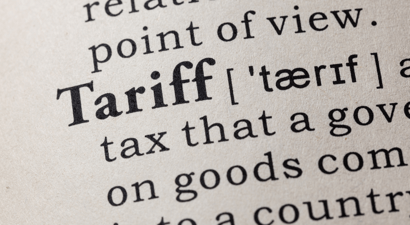Supreme Court of Appeal of South Africa (5 Judges) overturns decisions of the KwaZulu-Natal High Court
Supreme Court of Appeal of South Africa (5 Judges) overturns decisions of the KwaZulu-Natal High Court.
The Supreme Court of Appeal provides clarity on a number of issues relating to the action in rem and the arrest of associated ships.
During 2007 Galsworthy Limited (“Galsworthy”) time chartered to Parakou PTE Shipping Limited (“Parakou”) the MV “Canton Trader” later renamed the MV “Jin Kang” for a period of approximately five years. Due to the collapse in the charter market arising out of the financial crisis in 2008, Parakou failed or refused to take delivery of the “Canton Trader”. Arbitration in London followed in which Galsworthy sought damages from Parakou for its repudiation of the charterparty and obtained two awards in its favour.
In an attempt to enforce the awards, Galsworthy applied ex parte to Judges in the KwaZulu- Natal, Eastern Cape and Western Cape courts for orders directing the registrars to issue warrants of arrest and accompanying writs of summons in respect of eight associated vessels. The applications were brought on notice of motion supported by affidavit, inter alia, detailing the claim and the basis for the association. The MV “Pretty Scene”, identified as one of the vessels in the writ, arrived at Durban on 18 June 2016 and was arrested.
The owner of the MV “Pretty Scene”, Pretty Scene Shipping SA (“PSS”) applied to set aside the arrest on several bases. One of the defences raised was a technical one, i.e. that there were insufficient facts averred in the writ of summons to establish that the vessel was an associated ship within the meaning of the relevant sections of the South African Admiralty Jurisdiction Regulation Act. It was alleged that strict compliance with the relevant admiralty rule, that required a writ of summons to “contain a clear and concise statement of the nature of the claim” was necessary. Emphasis was particularly placed on a Practice Directive no. 27 of the Durban High Court that provided that the admiralty rule required that the writ of summons “should contain a statement of the facts upon which the claim is based and a statement of the facts on the basis of which it is stated that the ship is an associated ship”. This argument is all the more of a technical nature because PSS was aware of the facts upon which Galsworthy relied as proof that the MV “Pretty Scene” was an associated ship and did not dispute them. It was common cause that the vessel was indeed an associated ship.
The application to set aside the arrest of the MV “Pretty Scene” came before Vahed J. During the argument it became evident that the Judge was receptive to the technical argument and that there was a real risk that the arrest of the vessel might be set aside on that ground alone. The decision was taken to arrest the MV “Pretty Scene” for a second time using an amplified summons that met the technical argument. The second arrest was effected shortly before Vahed J handed down his judgment realising Galsworthy’s fears. The arrest was set aside on 31 October 2016 solely on the basis of the technical defence without considering any of the defences raised on the merits. Vahed J refused an application brought by Galsworthy for leave to appeal but the Supreme Court of Appeal granted leave to the Full Court of the KwaZulu-Natal Division (three Judges).
An application by PSS to set aside the second arrest was made, together with a counterclaim for security for damages allegedly suffered by PSS caused by the arrest of the MV “Pretty Scene” without reasonable and probable cause. The application came before Henriques J, who dismissed the application and maintained the arrest. The application for an order that Galsworthy furnish security for a counterclaim was also dismissed. PSS sought leave to appeal but this was refused. The Supreme Court of Appeal, however granted PSS leave to appeal, also to the Full Court.
The two appeals were heard in a consolidated hearing by the Full Court on 1 August 2018 and judgment was delivered on 4 March 2019. PSS was successful with both appeals and the first and second arrests were set aside.
The order directing that Galsworthy provide security for the counterclaim for damages caused by the vessel’s arrest without reasonable and probable cause was also sustained. In its judgment, the Full Bench approved the technical approach adopted by Vahed J and held further that Galsworthy had not proved that the MV “Pretty Scene” was an associated ship (despite the fact that it was common cause as between Galsworthy and PSS that the MV “Pretty Scene” was indeed an associated ship as described in the Admiralty Act).
An application by Galsworthy to the Supreme Court of Appeal for special leave to appeal both judgments was granted. The appeal was thereafter heard on 19 March 2021 and the unanimous judgment of the court was handed down on 12 April 2021. Galsworthy was successful in maintaining both arrests and in having the order that it furnish counter-security set aside.
The technical approach adopted by Vahed J in the application to set aside the first arrest was given short shrift. The Court referred to the general approach adopted in many maritime jurisdictions that only requires minimal details of the nature of a maritime claim to be included in a writ of summons and construed Admiralty Rule 2(1) in the same manner. The Court found that the details furnished by Galsworthy in the writ of summons in support of its allegation that the MV “Pretty Scene” was an associated ship were sufficient compliance with the Admiralty Rule. The requirements in Practice Directive no. 27 that facts be set out showing the basis on which a ship is an associated ship were found to be inconsistent with the Admiralty Rule and it was held that this passage of the Directive should not be followed. Wallis JA, who delivered the unanimous judgment of the Court stated that “the time has come to end this confusion and return admiralty practice to the simplicity the Admiralty Rules intended it to have."
Another defence that was raised by PSS was that Galsworthy’s claims for the enforcement of the two arbitration awards arose when the awards were published, which was at a time when Parakou was no longer a charterer of the “Canton Trader” (the charterparty had been terminated at a much earlier stage due to Parakou’s repudiation). For this argument PSS placed reliance on the English law doctrine of merger, claiming that the original cause of action had become merged in the arbitration awards. This argument was also rejected. The Court held that, for the purpose of the associated ship provisions, the arbitration awards were related to the ship concerned and were inextricably tied to the original cause of action. The consequence was that the claims for the enforcement of the awards arose at the time that the original cause of action arose, which was when the charterparty was repudiated.
An argument was advanced on behalf of PSS to the effect that section 3(7)(c) of the Admiralty Act, which deems a charterer of a vessel to be its owner, only applies if the claim arises when the charterparty is extant, if a claim arises after the termination of the charterparty (for example, when the arbitration awards were handed down) then the deeming provision has no application. This argument was also summarily rejected. The Court held that the deeming must be a deeming of ownership when the maritime claim arises. It therefore made no difference if the charterparty was no longer in existence at the time that the claim arose, the wide wording of the provision would still put a charterer in the place of the owner.
Needless to say, Galsworthy was vindicated by the judgment, which has also clarified the approach to be adopted in the description of a claim in a writ of summons in rem. The judgment has also cleared the way for litigants to proceed for the enforcement of an arbitration award and to advance a claim based on the original cause of action without fear that the doctrine of merger may displace both claims.
The above is merely a summary of the Supreme Court Judgment and if further information is required, please feel free to contact us.
Pandilaw email: pandilaw@wylie.co.za
| DURBAN: | +27 (0) 31 575 700 | |
| Krish Reddy | +27 (0) 82 443 7654 | reddy@wylie.co.za |
| Quintus van der Merwe | +27 (0) 82 466 5062 | qvdm@wylie.co.za |
| Shane Dwyer | +27 (0) 82 443 7653 | dwyer@wylie.co.za |
| Tony Edwards | +27 (0) 82 414 5670 | edwards@wylie.co.za |
| Wesley Rajbansi | +27 (0) 76 702 4536 | wesley.rajbansi@wylie.co.za |
| RICHARDS BAY: | +27 (0) 35 780 7250 | |
| Brian Morkel | +27 (0) 82 561 5135 | morkel@wylie.co.za |
| Allan Heydorn | +27 (0) 83 440 6502 | heydorn@wylie.co.za |
| CAPE TOWN: | +27 (0) 21 419 6495 | |
| Pauline Kumlehn | +27 (0) 79 525 6988 | kumlehn@wylie.co.za |





